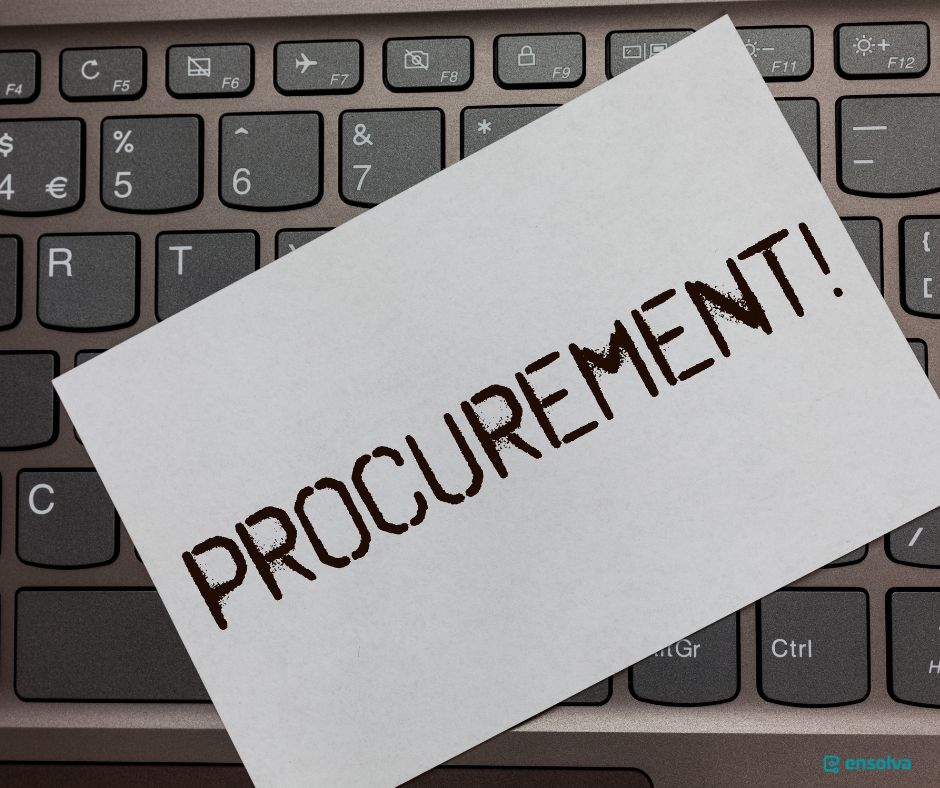“There’s no way to succeed in business without the highest ethical standards.”
(J. Belfort)
Ethics in Procurement
Ethical behavior plays a very important role in Procurement. It’s a department that cooperates with a large number of suppliers on a daily basis: procurement professionals select and evaluate suppliers, negotiate with them and conclude contracts that directly affect the whole company. According to that, Procurement must cultivate fair and objective relationships with suppliers, in line with ethical principles. In business, there is no place for immoral and illegal practices such as bribery, favoritism or illegal purchasing since such conduct can permanently harm the whole company. For this very reason, it is important to define an ethical code for the whole company and ensure that everyone in the company is adhering to it. Below we bring you some of the most common temptations procurement professionals face and some tips on how to avoid them:
Conflict of interest
Conflict of interest is the most common ethical problem Procurement can potentially be faced with. It’s a situation in which a person is in a position to derive personal benefit from actions or decisions made in their official capacity. The most common situation is favoring family, friends or relatives, at the expense or harm of the company or person who had given them their trust.
Employees who conclude contracts and procure goods or services from individuals or companies, with whom they have a personal or family relationship, harm the company in a manner that they consciously expose it to risk or overpay goods or services. A good procurement management policy should explain conflict of interest in detail and prohibit procurement where conflict of interest exists.
Bribery and corruption
Even when a conflict of interest isn’t apparent, relationships between employees and suppliers may sometimes be of concern for the suspicion that an employee has received a bribe. Bribery is the act of giving money, goods or other forms of recompense to a recipient in exchange for an alteration of their behavior (to the benefit/interest of the giver) that the recipient would otherwise not alter. Bribery is mostly used to influence the actions of an official or another person in charge of a public or legal duty.
It’s important to emphasize that gifts of money or other items of value which are otherwise available to everyone on an equivalent basis, and not for dishonest purposes, is not bribery. However, the line between gifts and bribery is often very thick. If the procurement professional receives any kind of compensation from a supplier – either in the form of cash or gifts – he takes the risk of being suspected of receiving a bribe, which may endanger not only his position in the company but also the company’s reputation. “Benefits” derived from unethical behavior are not worth the consequences of such a misdemeanor. The policy that restricts employees from receiving gifts or other rewards from suppliers may positively affect ethical conduct within a company in the long term and protect the organization from potential bad reputation.
Discrimination
Discrimination of suppliers based on nationality, religion, gender or any other factor that is not related to the product or service itself is in conflict with ethical principles, and often also with the law. According to the principle of equality, all suppliers should have the same treatment and equal chance for co-operation. It is clear that no form of discrimination is in line with ethical principles, but further assurance of the principle of equality at enterprise level can be achieved by introducing an ethical code and by promoting anti-discrimination policy.
Procurement of products or services that don’t meet quality standards
Purchasing products and/or services that are known to be unsafe, untested or inadequate may be the least important ethical concern when it comes to procurement management, but it should definitely not be neglected. Intentional procurement of goods or services that can cause potential damage to the consumer due to poor quality should be avoided at all cost, not only because injuries or other types of damage to the user could potentially lead to dispute but also because poor quality can harm the reputation of a company in the long term. For this very reason, procurement management should pursue policies that prohibit the purchase of goods or services that compromise security, as well as products which quality is unsatisfactory.
Every company or organization that wants to be successful must have a powerful ethical code that defines all business processes, including the procurement process. In order for the code to be used in practice, it is important to regularly train employees about ethical behavior. Benefits that this approach can bring are: greater efficiency and stronger value from procurement activity, better company image, increased loyalty of end customers and better public acceptance. In promoting ethical behavior in your company, your procurement software will be of great use. Ensolva is a tool that will contribute to gaining better transparency, but also help the purchasing department in the objective selection of potential suppliers.



